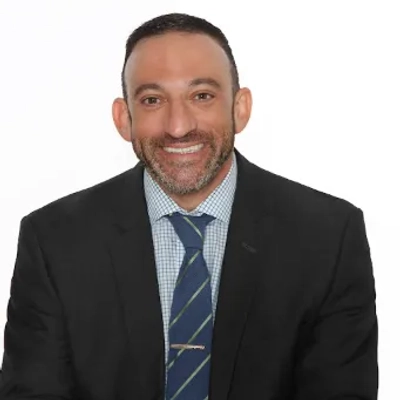25 Lessons on Insurance I Wish I Knew Sooner
Insurance can be a complex and often misunderstood aspect of personal finance. This article presents valuable lessons on insurance, drawing from the expertise of professionals in the field. Readers will discover practical insights that can help them make informed decisions about their insurance coverage and potentially save money in the long run.
- Start an HSA Early for Tax Advantages
- Document Everything After an Accident
- Maximize Uninsured Motorist Coverage
- Know Your Medical Equipment Coverage
- Your Insurance Company Is Not Your Ally
- Avoid Recorded Statements Without Legal Counsel
- Understand Insurance Coding and Facility Designations
- Private Pay Can Benefit Therapists
- Document Property Condition Regularly
- Invest in Comprehensive Umbrella Insurance
- Consider Cash-Pay Models for Healthcare
- Verify Mental Health Coverage Thoroughly
- Understand Auto Insurance Policy Thoroughly
- Learn Specialty-Specific Insurance Coding
- Utilize HSA/FSA for Wellness Treatments
- Get Improved Title Insurance With Survey Protection
- Verify Permit Compliance for Transport Insurance
- Insurance Protects Decision-Making Power in Crises
- Invest in Broad Insurance Coverage Early
- Treat Insurance as Long-Term Financial Strategy
- Read Policy Details to Avoid Coverage Gaps
- Consider Long-Term Financial Impact of Policies
- Pre-Authorize Non-Emergency Medical Procedures
- Invest in Comprehensive Insurance Early
- Verify Both Policy and Insurance Agent
Start an HSA Early for Tax Advantages
I would definitely tell my younger self to start a Health Savings Account (HSA) much earlier and max it out every year. Just last week, I helped a client who wished they had started their HSA in their 20s instead of their 40s, missing out on decades of tax-advantaged savings for healthcare costs. The triple tax advantage of HSAs is something I wish I had understood sooner – it’s like finding money you didn’t know you had when medical expenses pop up.
 James Inwood
James Inwood
Insurance Broker, James Inwood
Document Everything After an Accident
After decades representing accident victims, the advice I’d give my younger self is simple: document everything immediately, even if you feel fine. During my time at Michigan State Law Review, we studied cases where people lost thousands because they waited to see doctors after accidents.
I’ve seen too many clients who felt “okay” after car crashes, only to develop serious symptoms days later. Insurance companies love this – they’ll argue your injuries aren’t real or came from somewhere else. One case that stuck with me involved a client who waited a week to see a doctor after a rear-end collision. The insurer’s adjuster claimed her neck pain was from “sleeping wrong” instead of the accident.
The financial impact is massive. When you delay medical care, insurers assume you’re trying to “milk” your claim for extra money. They use this delay to slash settlement offers by 30-50% in my experience. I’ve had to fight tooth and nail to recover fair compensation for clients who made this mistake.
My firm now tells everyone: see a doctor within 24-48 hours, keep every receipt, and never sign anything from insurance companies without legal review. Those medical records become your strongest evidence, and insurance adjusters know most people don’t understand this timing game they play.
 Alon Barzakay
Alon Barzakay
Attorney, Attorney Big Al
Maximize Uninsured Motorist Coverage
Buy uninsured/underinsured motorist coverage at the highest limits your carrier offers – even if it costs extra. After handling thousands of car accident cases, I’ve seen too many clients get financially destroyed because the at-fault driver had minimum state coverage ($10,000 in Florida) while their medical bills hit $500,000+.
I had a client with a traumatic brain injury worth $2.25 million who was hit by someone with bare minimum insurance. Without UM coverage, she would have been stuck with a $10,000 payout for life-changing injuries. Her UM policy saved her from bankruptcy and provided the compensation she deserved.
The insurance industry’s dirty secret is that approximately 25% of drivers carry only state minimums, and another 13% drive completely uninsured. When you’re seriously injured, the difference between having $100,000 UM coverage versus $1 million can literally determine whether you keep your house.
Your own insurance company will fight you on UM claims just as hard as they fight others, but at least you have coverage. I’ve seen settlement mill lawyers leave millions on the table because they didn’t understand UM stacking rules – make sure you ask specifically about stacking if you own multiple vehicles.
 Matt Dolman
Matt Dolman
Managing Partner, Dolman Law Group
Know Your Medical Equipment Coverage
After 30+ years in business and running Complete Care Medical since 2004, I would tell my younger self: **Always understand what your insurance actually covers for medical supplies before you need them.** Most people find coverage gaps when they are already dealing with health issues.
When we started billing insurance for catheters and breast pumps, I was shocked to learn that many patients had been paying out-of-pocket for years—completely unaware their Medicare or private insurance covered these supplies at 100%. We have served over 50,000 customers, and I estimate 40% initially thought they had to pay cash for essential medical equipment.
The game-changer is knowing your Durable Medical Equipment (DME) benefits before a health event occurs. I have seen families spend $200+ monthly on catheters when their insurance would have covered everything with the right paperwork. One customer told us they had spent $8,000 over three years on supplies that should have cost them nothing.
My advice: Call your insurance company annually and ask specifically about DME coverage, prescription requirements, and approved suppliers. Do not wait until you are in a hospital bed to figure out what is covered—that is when you make expensive mistakes under pressure.
 JP Monteverde III
JP Monteverde III
President & CEO, Complete Care Medical
Your Insurance Company Is Not Your Ally
The most significant insurance lesson from my personal injury practice is this: **Never assume that your insurance company is on your side – even your own.** I learned this lesson the hard way in 2007 when a car struck me while I was jogging, resulting in a catastrophic brain injury.
Despite being a lawyer, I was shocked by how my own insurance carrier attempted to minimize my claim. They employed tactics I now see daily – requesting comprehensive medical authorizations to sift through my entire medical history, offering quick lowball settlements before I fully understood my injuries, and questioning the severity of my brain injury. This was *my own insurance company* to which I had been paying premiums for years.
The wake-up call was realizing that insurance adjusters receive bonuses for paying out less money, not for taking care of customers. Since then, I’ve secured multiple seven-figure verdicts against insurers who denied legitimate claims. In 2019 alone, we won two million-dollar jury awards against companies that believed they could stonewall injured individuals.
My advice: seek an independent advocate immediately after any serious incident. Insurance companies count on you not knowing your rights or the true value of your claim. They’ll act friendly and helpful while systematically devaluing everything to which you’re entitled.
 Keith Fuicelli
Keith Fuicelli
Managing Partner, Fuicelli & Lee Injury Lawyers
Avoid Recorded Statements Without Legal Counsel
After prosecuting insurance fraud cases and now representing accident victims for over 20 years, I’d tell my younger self: Never give a recorded statement to the other driver’s insurance company without consulting an attorney first.
Early in my career as a prosecutor, I saw how these recorded statements were weaponized against claimants. Insurance companies will call you within hours of an accident when you’re still shaken up, claiming they “just need a quick statement to determine fault.” They’re actually building a case against you.
I had a client who rear-ended someone at low speed in Houston traffic. It seemed straightforward – she was clearly at fault. But when the other driver’s insurance called, she mentioned she “might have been reaching for her phone” during the recorded statement. What should have been a $15,000 settlement turned into a $45,000 nightmare because they used that statement to argue reckless behavior and increased damages.
Insurance adjusters aren’t your friends, even when they sound sympathetic. They’re trained to extract admissions that minimize payouts. In Texas, you have zero legal obligation to give them a recorded statement. Tell them your attorney will contact them, then actually get one.
 Jonathan H. Cox
Jonathan H. Cox
Managing Partner, The Cox Pradia Law Firm
Understand Insurance Coding and Facility Designations
As a CRNA who’s been in healthcare for over 20 years, I wish I’d understood early on that insurance coverage varies wildly for the same procedure depending on where it’s performed. This realization hit me hard when I started my own pain management practice in Brighton.
I learned that a radiofrequency ablation procedure I perform might be fully covered at a hospital but require prior authorization or higher copays at an outpatient clinic. Same procedure, same outcome, completely different patient costs. When I was working in hospitals, I never saw this side of the equation.
Now I tell every healthcare provider starting out: understand the business side of insurance coding and facility designations. At Pain Specialists of Brighton, we accept most major insurances (BCBS, Cigna, United, Medicare), but I spend significant time ensuring patients understand their specific coverage before treatment. This knowledge would have saved me countless hours of frustration and helped my patients avoid surprise bills.
The biggest lesson is that insurance isn’t just about having coverage – it’s about understanding how location, coding, and timing affect what patients actually pay. This directly impacts whether someone can access the chronic pain treatment they desperately need.
 Jeff Toups CRNA
Jeff Toups CRNA
Owner & Founder, Pain Specialists Of Brighton
Private Pay Can Benefit Therapists
As a therapist who has been running my own practice since 2018, I wish I had understood that going off insurance panels is not the moral failing our professors made it seem. I spent my first year accepting $40-60 per session from insurance companies while drowning in paperwork and fighting for client authorizations.
The turning point came when I calculated that insurance was costing me $600-900 annually in liability coverage alone, plus countless unpaid administrative hours. Meanwhile, I was serving fewer clients effectively because I was constantly battling bureaucracy instead of providing therapy. I realized I could help more people by going private pay and offering sliding scale spots once financially stable.
Now my practice generates six figures annually, and I actually serve my community better. I run therapy groups where clients pay less per person while I’m fairly compensated, and I donate to organizations I believe in rather than subsidizing insurance company profits. The demand for quality mental health care is so high that ethical therapists should not feel guilty about charging sustainable rates.
The reality is that insurance companies profit while therapists and clients suffer. Your younger self needs to know that building a financially healthy practice is not selfish – it is what allows you to show up fully for the people who need you most.
 Danielle Swimm
Danielle Swimm
Consultant, Entrepreneurial Therapist
Document Property Condition Regularly
After dealing with almost 200 homeowners this year and seeing countless insurance claims, I’d tell my younger self: Always document everything BEFORE damage happens. Take photos of your entire roof, gutters, siding, and exterior from multiple angles at least twice a year.
I learned this watching a neighbor in Dublin get denied by their insurance company. When storm damage hit in May, they couldn’t prove which shingles were actually damaged by the wind versus normal wear. The adjuster denied half their claim because they had no “before” photos to compare against.
Now I tell every client to create a simple photo folder on their phone with exterior shots from spring and fall. When the next hailstorm hits Central Ohio, you’ll have solid proof of what damage is new versus existing. Insurance companies often try to minimize claims, but they can’t argue with timestamped photos showing your roof was in perfect condition three months ago.
The difference between receiving a $3,000 payout versus a $12,000 full replacement often comes down to having proper documentation. Spend 20 minutes twice a year taking photos – it’s the cheapest insurance policy you’ll ever buy.
 Cody Jackson
Cody Jackson
President, Black Bear Roofing & Exteriors
Invest in Comprehensive Umbrella Insurance
After handling $100M+ in ad budgets and running three companies, including a legal services firm with 50+ employees, here’s what I’d tell my younger self: **Get umbrella insurance immediately and understand liability limits before you need them.**
When I started Agency Y, I thought basic business insurance was enough. Then we hit our first major client dispute over a $2M campaign that went awry due to Facebook’s algorithm changes. Our standard policy only covered $500K, but the potential exposure was massive. That sleepless week taught me that successful businesses become bigger targets.
At Mass Tort Strategies, we see this daily with our medical lawsuit clients. People assume their health insurance will cover everything, but when you’re dealing with serious complications from medications like Ozempic or medical devices, the real costs come from lost income and long-term care that standard policies don’t cover. One client’s treatment costs hit $400K while their coverage capped at $50K.
The advice that would have saved me stress: buy way more coverage than you think you need, especially liability and disability insurance. Your future success makes you a target, and insurance is cheapest when you don’t desperately need it.
 Tim Burd
Tim Burd
Author, Justice Hero
Consider Cash-Pay Models for Healthcare
After co-founding Pure IV Utah and dealing with payment structures daily, here’s what I’d tell my younger self: **Don’t assume insurance coverage equals better healthcare access – sometimes cash-pay models serve patients far better.**
When we started Pure IV Utah, I initially thought we’d need insurance contracts to be legitimate. But after researching the reimbursement maze, we made a bold decision to stay cash-pay only. This lets us offer IV therapy sessions for $150-200 instead of the $400+ hospitals charge, plus we can focus entirely on patient care instead of claim denials and 90-day payment delays.
The real kicker? Our patients using HSA and FSA cards get the same tax benefits as insurance coverage, but with complete pricing transparency and zero surprise bills. One client told us she paid $800 at an ER for basic hydration that we provided at her home for $175.
My advice: look beyond traditional insurance models when evaluating healthcare value. Sometimes the “uninsured” option gives you better care, lower costs, and way less hassle than dealing with coverage networks and prior authorizations.
 Joseph Lopez PIVU
Joseph Lopez PIVU
Owner, Pure IV Utah
Verify Mental Health Coverage Thoroughly
Looking back, I’d tell my younger self to never assume your employer’s health plan actually covers mental health and behavioral services adequately. At Thrive, I see this gap constantly—60% of our patients with Cigna coverage still face significant out-of-pocket costs for intensive outpatient programs.
The reality hit me hard when we launched Thrive’s IOP services. Even patients with “comprehensive” insurance found their plans had separate deductibles for mental health, limited session caps, or required extensive pre-authorization that delayed critical care by weeks.
My advice: Always verify mental health parity compliance and ask specifically about coverage for intensive programs, not just basic therapy sessions. I’ve watched too many professionals delay getting help because they assumed their premium plan meant premium mental health access—it rarely does.
The most painful cases involve young professionals who could afford treatment but waited months thinking insurance would handle it, only to need more intensive (and expensive) care later. Mental health coverage is where insurance companies still play games, despite federal parity laws.
 Nate Raine
Nate Raine
CEO, Thrive
Understand Auto Insurance Policy Thoroughly
In regards to Auto Insurance, I would recommend that drivers take the time to understand their insurance policy and ask questions about the coverages if they are unsure what things mean. As an Insurance Agent, I have learned a great deal about Auto Insurance, and it is very common to talk to older people who do not know what certain coverages are. Many drivers will simply pick coverages or opt for the minimum coverage, and may later find out they are not adequately covered.
 Lauren McKenzie
Lauren McKenzie
Insurance Agent/Content Creator, A Plus Insurance
Learn Specialty-Specific Insurance Coding
As someone who built ChiroHer from the ground up and now works with patients daily, I wish I had known earlier that being “in-network” isn’t just about accepting insurance – it’s about understanding how your specialty gets coded and reimbursed.
When I first opened my boutique practice, I assumed prenatal chiropractic and Webster Technique would be covered the same as regular adjustments. I was wrong. Many insurance companies code pregnancy-related treatments differently, and some don’t recognize specialized certifications at all. I had to learn the hard way that a $200 session might only get $40 reimbursement if coded incorrectly.
The game-changer was realizing that offering free consultations actually protects both me and my patients. We can verify exact coverage before treatment starts, and patients know their real costs upfront. This transparency has eliminated surprise bills and dramatically reduced payment disputes.
Now I tell every healthcare provider starting out: spend time with your billing specialist learning CPT codes for your specific services. Don’t assume insurance works the same across specialties – it absolutely doesn’t.
 Michelle Andrews, D.C.
Michelle Andrews, D.C.
Owner, ChiroHer
Utilize HSA/FSA for Wellness Treatments
Obtain HSA/FSA-eligible health coverage and maximize those accounts – most people are unaware of the extent of qualified medical expenses they’re actually paying out of pocket.
As the operator of RevIVe Mobile IV, I observe clients spending $125-450 per session on wellness treatments that are fully HSA/FSA approved. Over our 3,000+ treatments since March 2023, I estimate clients have saved $200,000+ in taxes by utilizing these accounts instead of regular debit cards.
The game-changing moment for me was realizing that IV therapy, vitamin injections, and even some wellness treatments qualify as medical expenses. When you’re paying $300 for a greNADe treatment or $400 for The Kitchen Sink package during illness recovery, using pre-tax dollars saves you 22-37% depending on your tax bracket.
Most people believe HSAs are just for doctor visits and prescriptions, but the IRS list of qualified expenses is extensive. I wish I had known earlier that you can essentially get a guaranteed 25%+ return on money you’re already spending on health.
 Kylee Heck
Kylee Heck
Owner, RevIVe Mobile IV
Get Improved Title Insurance With Survey Protection
After handling thousands of real estate transactions since 2009, I’d tell my younger self: get title insurance with improved coverage that includes survey protection, not just the basic policy. Most buyers focus on homeowner’s insurance but completely overlook title risks that can cost way more.
I’ve seen three clients get burned by boundary disputes that basic title insurance wouldn’t cover. One buyer in Boulder found their new deck was actually 2 feet onto the neighbor’s property—$12,000 to relocate it. Their basic title policy covered nothing because it was a “survey matter.”
Improved title insurance with survey coverage costs maybe $300-500 more but covers these exact situations. The legal fees alone for a boundary dispute start at $5,000, and I’ve watched clients pay $20,000+ to resolve property line issues that improved coverage would have handled.
Most people spend weeks researching home insurance companies but sign whatever title policy their lender requires. Big mistake. As someone with a law background, I always tell clients that title problems can be far more expensive than typical homeowner claims, and they’re completely preventable with the right coverage upfront.
 Tommy Lorden
Tommy Lorden
Managing Broker, Slice Realty
Verify Permit Compliance for Transport Insurance
After coordinating over 15,000 vehicle and equipment transports, I’d tell my younger self: Always ask about permit compliance affecting insurance coverage before signing any transport contract. Most people focus on basic liability limits, but miss this critical detail.
Early in my career, I had a client shipping a $180,000 yacht from Florida to Nevada who thought his transport was fully covered under our standard $250,000 policy. The carrier missed a required oversize permit in one state, and when minor damage occurred during that illegal stretch, the insurance company refused the entire claim due to non-compliance clauses.
The client ended up paying $23,000 out of pocket for repairs that should have been covered. Now I always verify that transport companies maintain proper permits for the entire route, because invalid permits can void your insurance coverage entirely—even if the damage happens elsewhere.
Your insurance is only as good as your compliance with regulations. Before any high-value transport, demand to see current permits for every state on your route, not just proof of insurance limits.
 William Meyer
William Meyer
President, We Will Transport it
Insurance Protects Decision-Making Power in Crises
If I could sit my younger self down and give him just one piece of advice about insurance, it would be this: don’t buy insurance to “protect your stuff.” Buy it to protect your decision-making power when life goes sideways.
Here’s what I mean. When I was younger, I thought of insurance like a reimbursement plan. If I broke a laptop or got in a fender-bender, someone else would foot the bill. That’s how most people think of it, right? But that’s only a tiny slice of the story.
The first time I really understood this was when a close family member was hit with a medical issue out of nowhere. The treatment wasn’t expensive enough to bankrupt us, but it was costly enough to make us hesitate. And in that moment, the question wasn’t “Can we afford this?” It was, “Are we going to risk financial instability to do what we know is right?”
That’s the killer no one talks about: the stress of forced compromise. The moments when you have to choose between the smart financial move and the emotionally correct one. Between stability and speed. Between protecting your future and honoring your values.
Having good insurance — the right kind, with the right coverage, the right limits, and the right terms — doesn’t just help you avoid debt. It helps you move fast when you need to move fast. It buys you mental clarity. And in a crisis, clarity is gold.
So yeah, I’d tell my younger self: read the policies. Ask the boring questions. Because one day, you’re going to want to say “yes” to something hard — without having to do math first.
 Derek Pankaew
Derek Pankaew
CEO & Founder, Listening.com
Invest in Broad Insurance Coverage Early
Invest in a broad and tailored insurance program early, even if it feels like a stretch, to protect your company’s expansion. At the beginning of LAXcar’s career, I cheaply insured it, knowing that if I needed more coverage (in case of collision), I could easily change the coverage to fit my needs. Sadly, this decision came back to bite us, as one of the cars got into a bit of a scrape. Between covering the repair and a customer liability claim, we had to stretch our finances and put expansion plans on hold for months.
That was a hard-earned lesson in where businesses can cut costs, and where they cannot risk going without proper protection, particularly in a high-stakes industry like luxe car services, where accidents, thefts, and customer disputes can pose a real threat. Without carrier coverage, we were not only financially vulnerable, but we could have let business down. After that struggle, I made it a priority to get full coverage, commercial auto, general liability, and cyber insurance so we had a shoulder to lean on and grow from.
For any entrepreneurs who are just starting, I would recommend having a consultation with an insurance broker who can give you the tailored coverage that matches the unique risks your business might face. Don’t just go with the cheapest option — have the right coverage in place. Check your policies year in, year out, and favor insurers with good claims support. Insurance is more than just protection—it’s a strategic tool for helping drive growth by enabling you to take risks and go on the offensive, secure in the knowledge that you don’t need to fear the unexpected.
 Arsen Misakyan
Arsen Misakyan
CEO and Founder, LAXcar
Treat Insurance as Long-Term Financial Strategy
If I could go back and give my younger self one piece of advice about insurance, it would be this: don’t treat it as a grudge purchase—treat it as part of your long-term financial strategy. I used to see insurance as something you buy because you “have to”—an expense you hope you’ll never need. But over time, I realized that mindset couldn’t be further from the truth.
Insurance isn’t just about covering worst-case scenarios; it’s about buying peace of mind and protecting the momentum of your life. Whether it’s health, life, or even income protection, the real value of insurance kicks in during moments of crisis—when you’re blindsided by something you didn’t see coming and don’t have the luxury of time or options. And those moments come for all of us, eventually.
I learned this firsthand during an unexpected health scare that reminded me how quickly things can unravel financially without a solid plan. It wasn’t just about hospital bills—it was the stress, the lost time, the financial juggling. That experience shifted how I looked at premiums. What once felt like “wasted money” became one of the best investments I’d ever made in future-proofing my life and responsibilities.
Now, I advise younger people—and entrepreneurs in particular—to think of insurance as a foundational layer, not an afterthought. Build it into your life and business planning early, when premiums are lower and options are broader. You don’t need to over-insure, but you do need to understand what coverage gives you stability, and what gaps could put you at risk.
This advice is significant because insurance isn’t just a financial product—it’s a confidence multiplier. It gives you the freedom to take smarter risks in your career or business, knowing that if things go sideways, you’re not starting over from zero. That peace of mind? It’s priceless—and something I wish I’d understood much sooner.
 John Mac
John Mac
Serial Entrepreneur, UNIBATT
Read Policy Details to Avoid Coverage Gaps
To me, the most important lesson was never to overlook the details in hindsight when I consider my initial mistakes with insurance. There is a lot of temptation to get excited over an awesome-looking policy that seems fabulous on the surface, then skip examining what it actually covers, and end up in a position to lose. I did just that and purchased a policy that appeared to be perfect until I had to use it, only to find that some of the most critical scenarios were not covered. Today, I advise all people to read carefully about exclusions, limits, and the claims procedure in order to make an informed decision. Otherwise, you will find yourself in a situation where you have coverage that will not protect you if something goes wrong. In a nutshell, the only way you can protect yourself is by knowing exactly what you are purchasing. Be prepared when life throws you a curveball. Read the information first; it may be your safeguard or a waste of money.
 Dr. David Ghozland
Dr. David Ghozland
Owner and Ob/Gyn, David Ghozland
Consider Long-Term Financial Impact of Policies
Thinking back, the only thing I might tell myself is not to underestimate the financial implications of insurance policies, in the long term. When buying a policy, one can be tempted by short-term savings but this may harm in case people do not consider the big picture. I would encourage myself to think of the place of the policies in the big picture that is asset protection and risk management. The gap between a policy that will keep a few dollars on hand today, and a policy that will provide full coverage when there is a significant loss, can literally be huge.
The knowledge of the subtleties of insurance, particularly the impact of insurance coverage on claims and the impact of underinsurance is useful in creating a safer future. This tip is important since it is the most significant tip on the way to financial stability because without it you can survive an unpredicted event without damaging your financial well-being.
 Rami Sneineh
Rami Sneineh
Vice President / Licensed Insurance Producer, Insurance Navy
Pre-Authorize Non-Emergency Medical Procedures
My advice regarding medical aid and healthcare insurance would be to pre-authorize all non-emergency procedures to ensure your claims are approved, potentially saving you from paying for the complete treatment out of pocket.
Pre-authorization means getting approval from your medical aid scheme before undergoing a planned treatment or procedure. This ensures that the scheme confirms the necessity of the procedure and that it falls within your plan’s benefits. If this process is skipped, the claim could be declined, even if the treatment itself is medically justified. This often leaves patients liable for the full cost of the procedure.
A common misconception is that a comprehensive medical aid plan will cover all costs. In reality, schemes only reimburse up to their defined tariff or rate, and many specialists charge above this. Understanding these limits ahead of time can help you avoid financial surprises and, where necessary, allow time for you to explore supplementary cover options.
 Pascale Campodonico
Pascale Campodonico
Business Consultant, Total Risk Administrators
Invest in Comprehensive Insurance Early
If I could give my younger self one piece of advice about insurance, it would be to never underestimate its importance as a safety net for life’s uncertainties. Understanding the value of health insurance, property insurance, and life insurance has been crucial in my experience as a business owner. Health insurance has provided peace of mind during unexpected medical situations, ensuring access to care without devastating financial strain. Property insurance has safeguarded my investments, protecting my business and home from potential damages that could have set me back immeasurably. Life insurance reminds me that my family’s financial security remains intact even in my absence. These types of coverage are not just expenses but vital protections that offer stability and confidence when navigating unforeseen challenges. Investing in the right insurance early on is one of the wisest decisions anyone can make to shield against hardship.
 Valentin Radu
Valentin Radu
CEO & Founder, Blogger, Speaker, Podcaster, Omniconvert
Verify Both Policy and Insurance Agent
A friendly smile doesn’t mean you’re getting the right plan. If I could go back, I’d tell myself to double-check both the policy and the person selling it. Insurance is only helpful if it actually covers what you need.
 Sherri Matheney
Sherri Matheney
Health Insurance Agent, Health Insurance With Sherri
